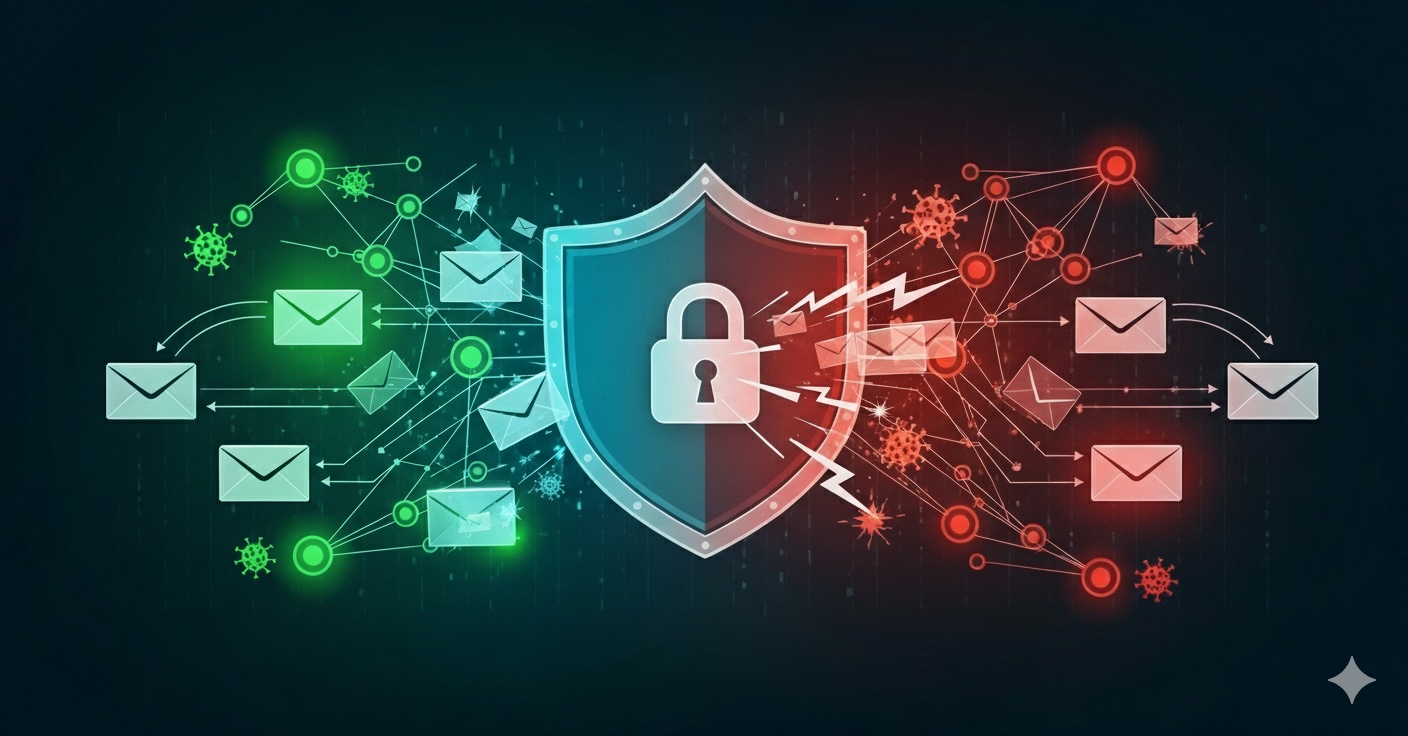Many SMB owners are unaware that maximizing value on digital marketing spending is directly tied to basic cyber security practices. If you are not implementing basic cyber security practices such as domain reputation management and email security, your digital marketing budget is likely not getting anywhere close to dollar-for-dollar in value.
Managed domain reputation involves a proactive strategy for monitoring and improving your domain's trustworthiness by using authentication protocols like SPF, DKIM, and DMARC, and by consistently adhering to best practices for email sending, such as maintaining good list hygiene and ensuring high engagement rates. This process is essential for ensuring your emails land in inboxes, preventing them from being marked as spam or suspicious, and protecting your brand's credibility and revenue.
Key Aspects of Domain Reputation Management
- Email Authentication: Implement SPF, DKIM, and DMARC to verify the legitimacy of your email sources and instruct email providers on how to handle untrusted messages.
- List Hygiene: Regularly clean your email lists to remove invalid, fake, or disposable addresses to reduce bounce rates and spam traps, which can negatively impact your reputation.
- Sender Behavior: Send emails consistently and gradually increase your email volume to build a positive reputation over time.
- Engagement Rates: Track how recipients interact with your emails. High engagement, such as opens and clicks, boosts your domain's reputation.
- Spam Complaint Rates: Keep your spam complaint rate below 0.1% by ensuring your email content is relevant and desired by recipients.
- Blacklist Monitoring: Proactively monitor if your domain or IP address is on any email blacklists to take corrective action.
Why It Matters
- Email Deliverability: A good domain reputation increases the chances of your emails reaching the inbox instead of being sent to the spam folder or labeled with warning banners.
- Brand Credibility: A strong reputation protects your brand's integrity by demonstrating that your domain is trustworthy and not a source of spam.
- Revenue Growth: By ensuring emails are delivered and seen, you can drive more traffic and increase conversions, ultimately boosting your business's growth.
How to Improve Your Domain Reputation
- Start with a Strong Foundation: Implement SPF, DKIM, and DMARC correctly to authenticate your emails.
- Maintain a Clean Email List: Use email verifiers to get rid of invalid and fake addresses from your database.
- Warm Up Your Domain: For new domains, start by sending a small volume of emails and gradually increase the number as you build positive engagement.
- Monitor Key Metrics: Consistently check your spam complaint rates, bounce rates, engagement rates, and any blacklisting.
- Use Domain Reputation Tools: Utilize online tools to get insights into your domain's reputation score and identify areas for improvement.
By working together we can increase your value in digital marketing efforts, strengthen your cyber security, and protect your brand’s value. Please do not hesitate to reach out to our sales or support teams with any questions. We are here to help you navigate this evolving threat landscape and assist with growing your business revenue.
Click here to access a free domain security report for your business.
